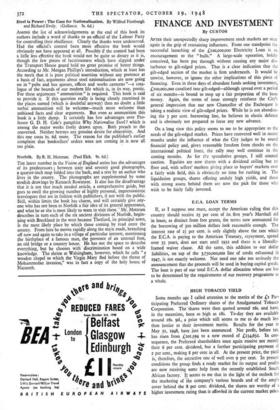Steel is Power : The Case for Nationalisation. By Wilfred
Fienburgh and Richard Evely. (Gollancz. 3s. 6d.) AMONG the list of acknowledgements at the end of this book its authors include a word of thanks to an official of the Labour Party for controlling their ebullience. Clearly the thanks were undeserved. Had the official's control been more effective the book would obviously not have appeared at all. Possibly if the control had been a litile less effective the book would not be quite so dreary as it is, though the few pieces of facetiousness which have slipped under the Transport House guard hold no great promise of better things. According to Mr. Morgan Phillips's introduction, which at least has the merit that it is pure political assertion without any pretence at a basis of fact, arguments about steel nationalisation are now going on in "pubs and bus queues, offices and works canteens "—a cata- logue of the bounds of our modern life which is, in its way, poetic. For these arguments " ammunition " is required. This book is said to provide it. If this question really is being closely examined in the places named (which is doubtful anyway) then no doubt a little verbal ammunition will be welcome—much more welcome than unbiased facts and clear arguments. But even as ammunition this book is a little damp. It certainly has few advantages over Pro- fessor G. D. H. Cole's pamphlet Why Nationalise Steel? which is among the major works freely drawn upon. Both preach to the converted. Neither betrays any genuine desire for objectivity. And this one costs Is. 6d. more. The reason for the publisher's earl:er complaint that booksellers' orders were not coming in is now all too plain.


































 Previous page
Previous page